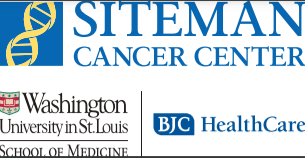- Advertise
- About OncLive
- Editorial Board
- MJH Life Sciences brands
- Contact Us
- Privacy
- Terms & Conditions
- Do Not Sell My Information
2 Clarke Drive
Suite 100
Cranbury, NJ 08512
© 2025 MJH Life Sciences™ and OncLive - Clinical Oncology News, Cancer Expert Insights. All rights reserved.
WT-7 Shows Acceptable Safety Profile in Relapsed/Refractory T-ALL/LBL
Armin Ghobadi, MD, discusses the safety profile of WT-7 in heavily pretreated relapsed/refractory T-ALL and LBL.
Treatment with WU-CART-007 (WT-7), an investigational CD7-targeted CAR T-cell therapy, has demonstrated antileukemic activity and an acceptable safety profile in heavily pretreated patients with relapsed/refractory T-cell acute lymphoblastic leukemia (T-ALL) and lymphoblastic lymphoma (LBL) in the phase 2 portion of a phase 1/2 trial (NCT04984356), according to Armin Ghobadi, MD.
During an interview with OncLive® at the 2024 ASH Annual Meeting, Ghobadi discussed the key findings from the phase 1/2 trial with WT-7, the implications of the agent’s safety profile, and expectations for WT-7 moving forward.
Ghobadi is a professor of medicine, Oncology, Section of Bone Marrow Transplant, and clinical director of the Center for Gene and Cellular Immunotherapy at Washington University’s Siteman Cancer Center in St. Louis, Missouri.
OncLive: What were some of the key findings from the phase 1/2 trial evaluating WT-7 in relapsed/refractory T-ALL/LBL?
Ghobadi: In terms of safety, [WT-7 is fairly acceptable] and [the adverse effect (AE) profile] is what you can expect in this group of patients. [The rate of] cytokine release syndrome [CRS] was high, at 69% as you can expect, and [the rate of] grade 3 [CRS] was 31% but [all events] were treated and resolved. In terms of immune effector cell–associated neurotoxicity syndrome [ICANS], it wasn’t that common—grade 1 and 2 [AEs occurred in] 8% [of patients] and there were no grade 3 or higher [events]. Graft-vs-host-disease [GVHD], as this is an allogeneic CAR, was not seen at a high frequency. One patient had transient GVHD that resolved with treatment.
In terms of outcomes, response was very high: 91% of patients had an overall response with a composite complete response [rate] of 73%. For this group of patients, the only FDA-approved [therapy] in the second-line setting is nelarabine.
For the next steps, the registrational pivotal trial has launched and…will be a global, single-arm, multicenter, phase 2 study [NCT06514794] to look at WT-7 in pediatric and adult patients with relapsed or primary refractory T-ALL and LBL.
What is important to take away from the safety data seen with WT-7 so far?
CAR T-cell therapy [is associated with] AEs of special interest, mainly CRS, and ICANS. [The high rate of] CRS we saw is what we expect in patients [with ALL] getting CAR T-cell therapy. The main thing is, we know how to manage those AEs. There are different modalities. We start early and we can reverse CRS. In close to 100% of patients in real practice, when they get a standard of care, you can reverse [these events], and that was the case in this clinical trial. All [events] were reversed with the treatment that we have for CRS.
What can we expect to see with WT-7 moving forward?
WT-7 is targeting relapsed/refractory T-ALL and LBL in a pivotal trial, but that product has been tested in a different multicenter study [in patients with] T-cell lymphoma, T-cell prolymphocytic leukemia, and even ALL with CD7 positivity. This product has shown really good responses so far, and I’m hopeful that it’s is going to change the way we treat this patient population with CD7-positive malignancies, including T-ALL and LBL.
Reference
Ghobadi A, Aldoss I, Maude SL, et al. WU-CART-007 (WT-7), an allogeneic CAR T-cell targeting CD7 in relapsed/refractory (R/R) T-cell acute lymphoblastic leukemia/lymphoma (T-ALL/LBL): phase 2 results. Blood. 2024;144(suppl 1):3450. doi:10.1182/blood-2024-202005


